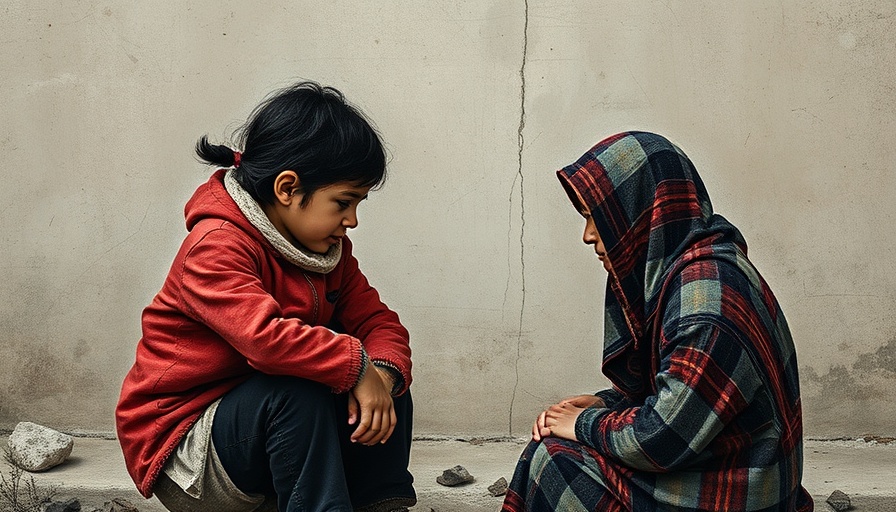
The Legacy of War: Understanding Trauma and DNA Methylation
Over the past few decades, the understanding of trauma and its extensive impact on human health has evolved significantly. Not only can traumatic experiences influence an individual's life, but they may also ripple across generations, affecting those who were not directly involved. For instance, children of Holocaust survivors show increased risks for mental health issues, suggesting a profound intergenerational impact, often tied to adaptations in genetics and physiology related to trauma.
How Trauma Possibly Affects Our DNA
Research into trauma suggests that its ramifications may go beyond psychological dimensions. At a biological level, science indicates trauma could change how our DNA operates through a process called DNA methylation. This is essentially where small molecules attach to DNA, influencing gene expression without altering the underlying genetic code. Just as dimmer switches control the brightness of a light, methylation modulates gene activity in response to external pressures, including extreme stress or trauma.
Research on Syrian Refugees: A Groundbreaking Study
A pioneering study published in Scientific Reports dives into the question of whether experiences of war are biologically inscribed within the DNA of Syrian refugee families. By examining 48 families in Jordan, the researchers categorized individuals based on their exposure to violence: direct exposure, prenatal exposure, germline exposure, and a control group with no war experience. This allows a detailed analysis of how such traumatic encounters may leave a biological mark that endures across generations.
The Science Behind Measuring DNA Methylation
To assess DNA methylation, the researchers collected buccal swabs from participants and analyzed over 850,000 genomic sites. By employing two main techniques — Epigenome-wide association studies (EWAS) and epigenetic age acceleration assessments — they could identify significant differences in DNA methylation patterns across the various exposure categories. The findings have essential implications for understanding how such traumatic experiences can potentially manifest biological changes that affect mental health from one generation to another.
Addressing Controversies Surrounding Epigenetics
The concept of trauma being written into our DNA is not without controversy. Critics often point to the limited scope of existing human studies and the challenges in controlling for myriad environmental factors that influence health outcomes. However, emerging data continues to build a compelling case for the biological transmission of trauma signals over generations, suggesting an intersection between biology and lived experience. This concept could have profound implications for mental health treatments and interventions with refugee populations.
Why Understanding This Matters for the Grand Strand Residents
The implications of intergenerational trauma stretch far beyond borders. For residents of the Grand Strand, understanding these dynamics can be crucial not only in the context of global refugee issues but also for the local community's issues. Mental health awareness can pave the way for supportive measures for those affected by wars or trauma and encourage empathy towards the struggles faced by individuals—both past and present.
Moving Forward: Steps Towards Healing
What might this mean in practical terms? Acknowledging the issues surrounding trauma can inform how communities approach mental health resources and create supportive environments for families grappling with these legacies. Educational initiatives, community support groups, and enhanced mental health services could play pivotal roles in addressing such complex challenges. Encouraging dialogue, fostering community ties, and integrating mental health care into community services is essential for holistic healing.
Concluding Thoughts on Trauma and Resilience
As we deepen our understanding of trauma and its long-lasting effects, it is essential to foster resilience within our communities. Supporting one another and recognizing how past crises shape current realities can enable constructive dialogue and collective healing. For those in the Grand Strand interested in promoting mental health and wellness, engaging with these issues is not just essential — it’s a step towards creating a healthier future for everyone.
Consider reaching out to local mental health initiatives or participating in community dialogues. By doing so, you can become an advocate for change, supporting those who need understanding and resources to overcome the shadows of the past.
 Add Row
Add Row  Add
Add 





Write A Comment